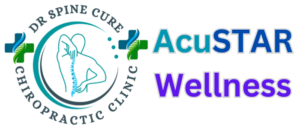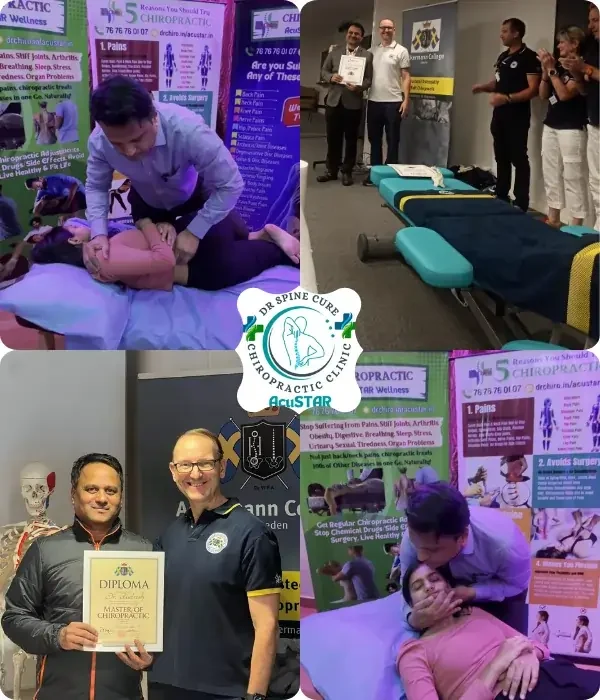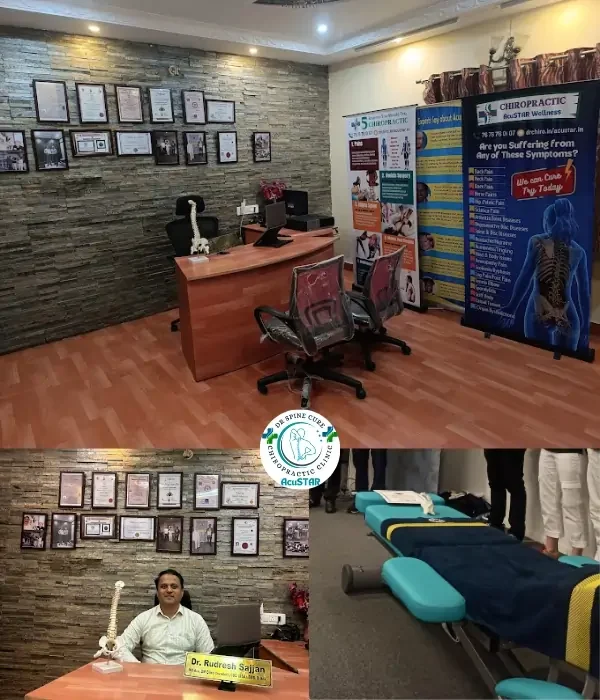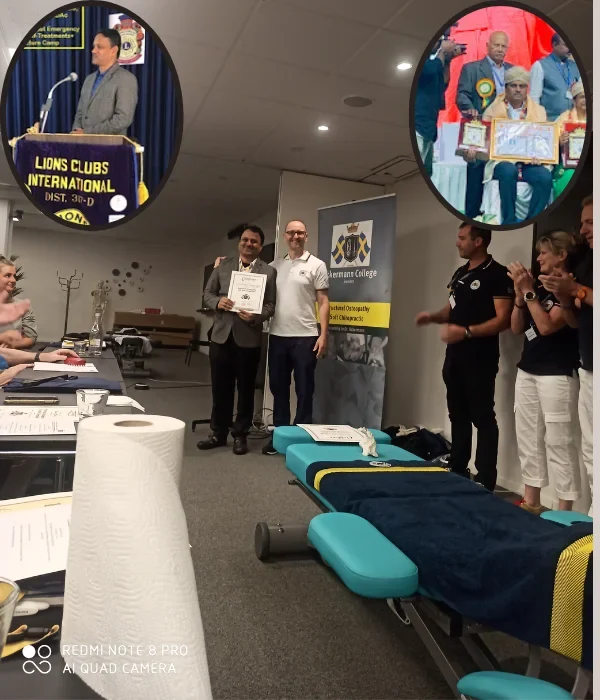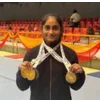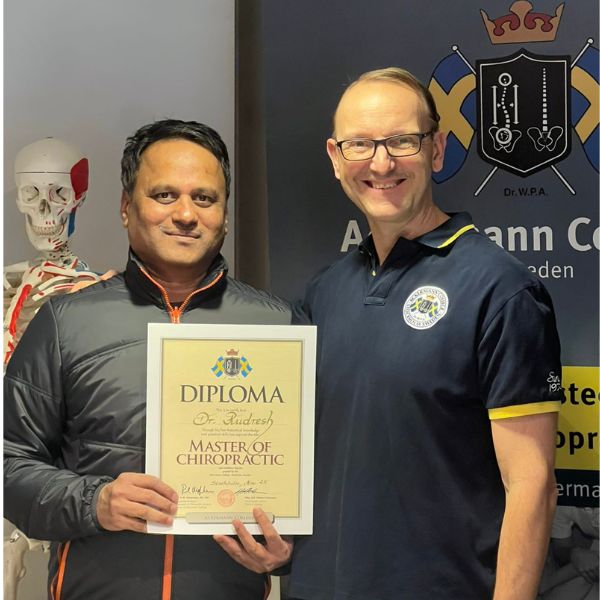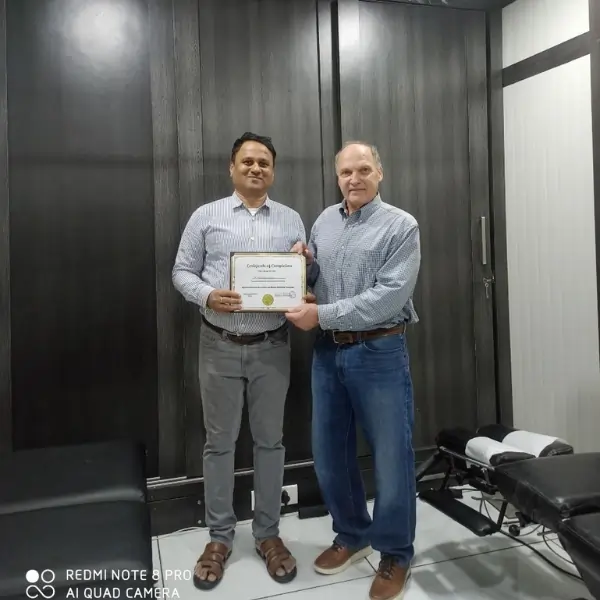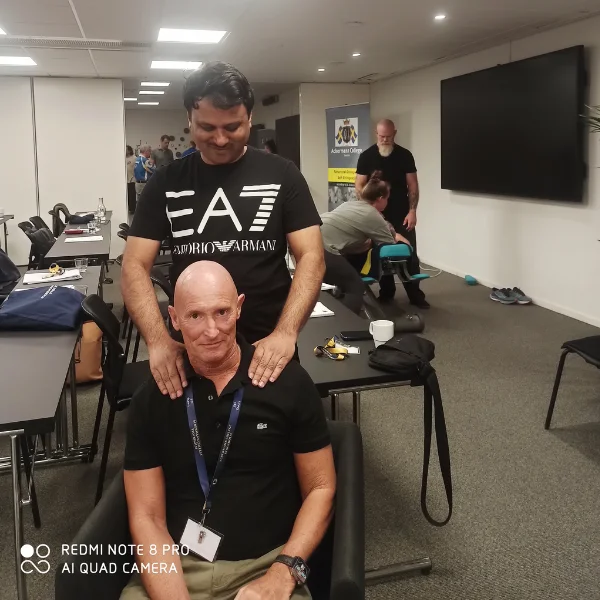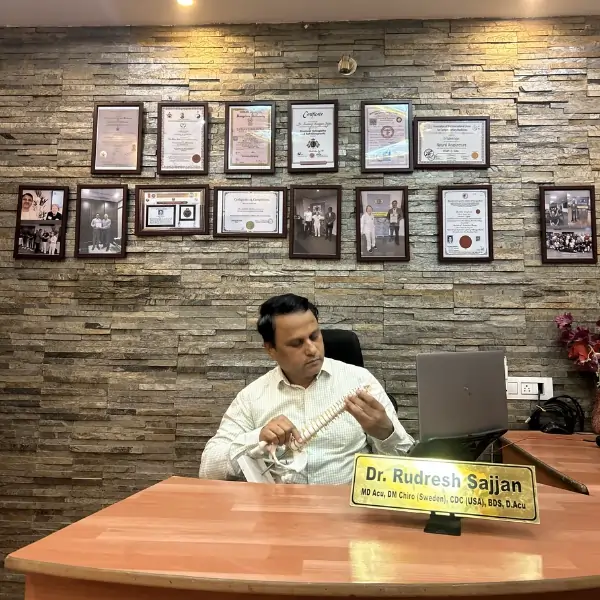our Best services of chiropractOR in bangalore
What Chiropractic can Treat?
We offer top Treatments by No.1 chiropractor (Trained in Europe & US) in Bangalore for back pain, neck pain, sciatica, spondylitis, knee pain, arthritis, Joint pain, posture Correction, Spine problems, etc. Dr. Rudresh is certified & licensed from Ackermann College @ Stockholm-Europe's No. 1 college since 1974 & Trained by dr. paul (orthopedic Surgeon cum chiropractor in Sweden), CDC in Dr. cox chiropractic by Leander healthTech, USA; & Dr. Thomas-Hollywood Celebrity Chiropractor (US/germany).
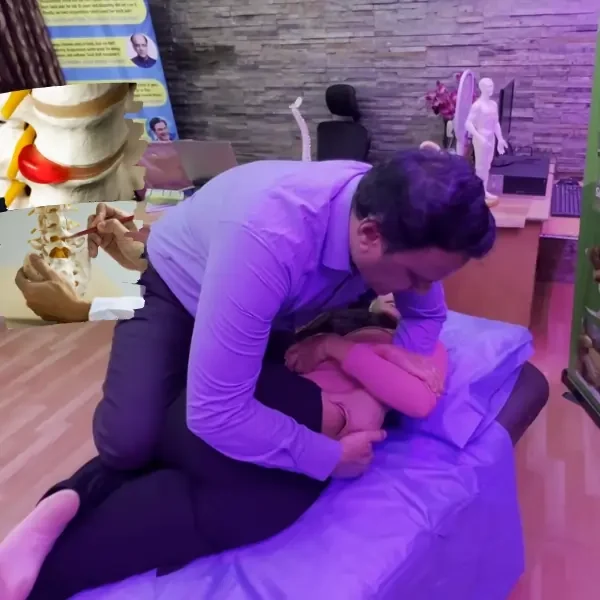
Experience expert, non-surgical treatment by Europe-certified chiropractor, Dr. Rudresh, for conditions like herniated disc, disc bulge, & a stiff back. We offer precise, tailored back pain treatment near me solutions for fast & permanent results without surgery in Banglore @ AcuSTAR Chiropractic
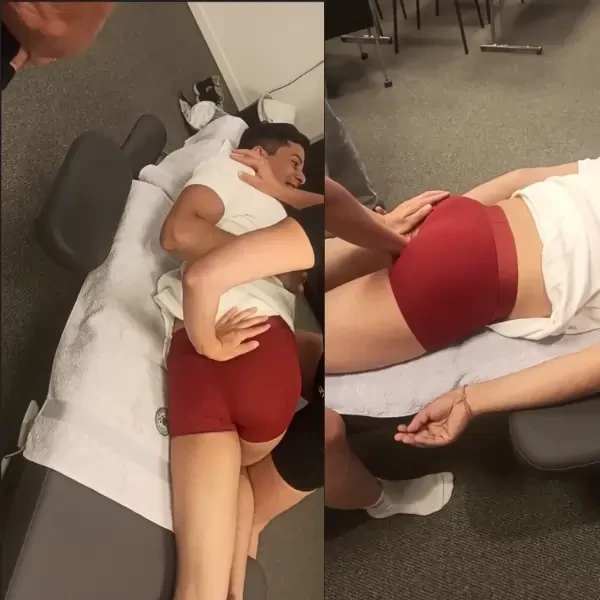
Get chiropractic for Sciatica pain relief in Bangalore @AcuSTAR
Experience permanent, non-surgical sciatica pain relief in Bangalore. We use unique, multi-modal approach combining Chiropractic + Osteopathy, Spinal decompression, Auricular, & Cupping. This targets the root cause (herniated disc or spinal misalignment), offering the most effective hip & sciatica pain treatment near me by Dr. Rudresh-Best Chiropractor
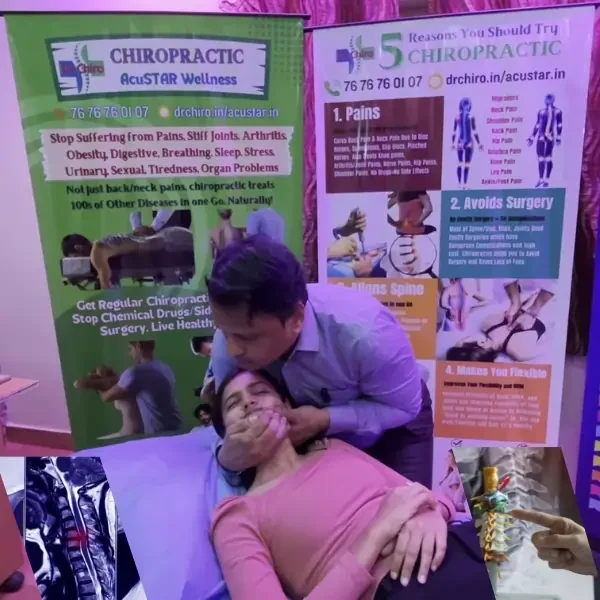
Cervical Adjustment for Neck Pain by Dr. Rudresh in Bangalore.
Experience nonsurgical, drug-free chiropractic care for chronic neck pain, stiffness, and headaches. Our specialists at AcuSTAR Wellness provide precise, safe cervical spinal adjustments to restore alignment, improve range of motion, and fast relief for ‘Tech Neck’ and whiplash.
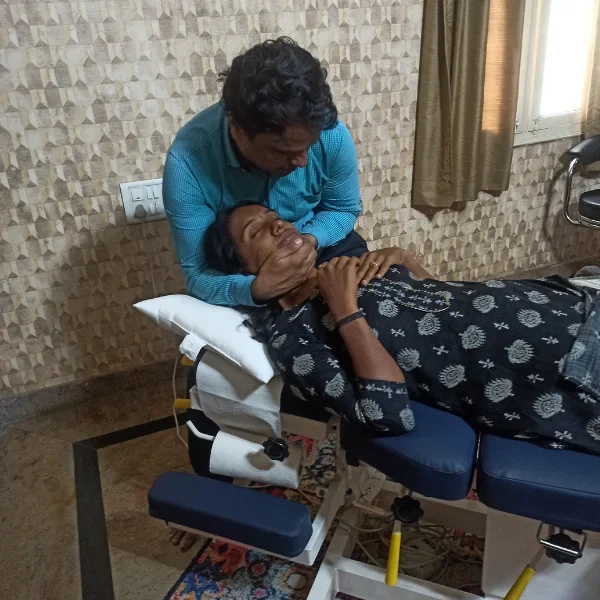
Cervical Spondylosis
Now you can reverse cervical spondylitis effectively with special chiropractic care in Bangalore. AcuSTAR Wellness offers unique combination of treatments for better spine health and quality of life.

arthritis/Joint Pain
Get rid of arthritis and joint pain with chiropractic care in Bangalore. AcuSTAR Wellness provides effective, personalized treatments to enhance your joint function and relieve pain naturally.
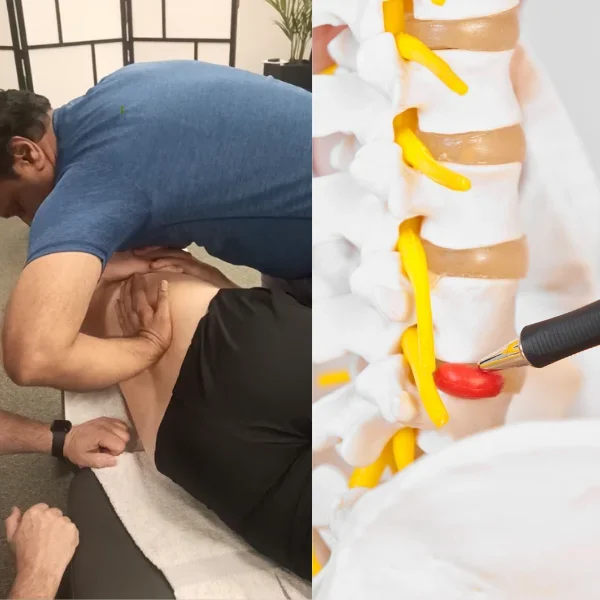
Disc Bulge/spine Pain
Explore comprehensive chiropractic treatments for disc bulge, herniated discs, and spine pain in Bangalore. Our experts at AcuSTAR Wellness can treat them effectively to restore spinal health.
